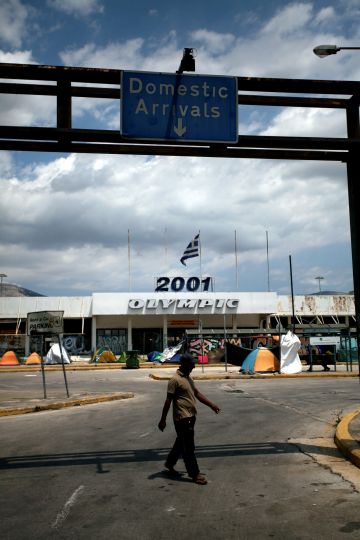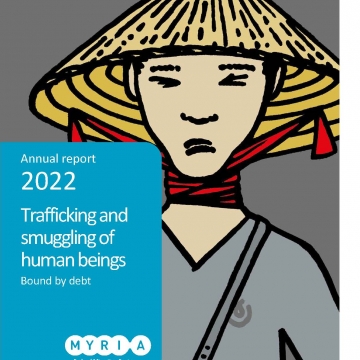International protection
Asylum and subsidiary protection : these are the two principal forms of international protection available to foreigners arriving in Belgium. The procedure for stateless foreigners is at the moment less self-evident; however, gaining citizenship is an essential first step towards being able to exercise many other rights.
Who can request asylum?
Belgium has committed to offering protection to foreign citizens in particularly serious circumstances. Therefore, those in fear of persecution and who can prove that their life or personage is at risk can ask Belgium for protection. In Belgium, the Immigration Office registers asylum requests and the General Commission for Refugees and Stateless Persons (GCRSP) makes the final decision. The latter can be appealed against in front of the Immigration Litigation Council (ILC).
Recognized Refugees
Asylum is granted to people in fear of persecution due to their race, their religion, their nationality, membership of a certain social group, or their political opinion and who cannot rely on their own country for protection. The criteria for granting asylum are detailed in the Geneva Convention. If the request for asylum meets the Geneva Convention’s requirements, the GCRSP (or the ILC) will grant the applicant refugee status. This is the process of becoming a recognized refugee.
Subsidiary Protection
However, if the request does not meet the requirements of the Geneva Convention, the GCRSP will consider whether the person in question is at risk of serious harm (death penalty, inhuman or degrading treatment, or a serious threat owing to indiscriminate violence in situations of internal or international armed conflict) if they were to return to their country. In this circumstance, a subsidiary protection is granted.
Reception
During the procedure, asylum seekers have the right to seek financial aid that will enable them to lead a properly supported, dignified life. In Belgium, the reception centre is managed by Fedasil, the federal agency for the reception of asylum seekers, in collaboration with other organizations (namely public social actions centres and NGOs).
Statelessness
Stateless persons are a particularly vulnerable group because they do not have citizenship. There are approximately 10 million stateless persons in the world. In 1961 the United Nations introduced a convention that aimed to reduce and prevent statelessness. Belgium signed it in 2014.

 Publication
Publication
Universal Periodic Review: Parallel report
Parallel report of Myria, Unia and the Combat Poverty, Insecurity and Social Exclusion Service, on the 52nd session of the Universal Periodic Review.
 Publication
Publication
2024 Annual report Trafficking and smuggling of human beings
This annual report, entitled ‘Latin American sex work: a high-risk carousel’, particularly draws attention to the phenomenon of Latin American sex work and calls for the fight against trafficking to be adapted to the new realities of the digital world. These realities are leading to the creation of new, subtle forms of exploitation that require properly adapted investigative resources. Myria is also calling for stronger international collaboration and awareness-raising among the players concerned
_360_360_s_c1.png) Publication
Publication
Gaza Strip: Belgian assistance, evacuations and visa applications
Myria continues to receive reports from Palestinians and Belgians who are deeply concerned about the fate of their relatives trapped in extremely dangerous conditions in Gaza.
 Publication
Publication
2023 Annual report trafficking and smuggling of human beings
Myria is publishing the English version of its 2023 evaluation report, entitled ‘A chain of responsibilities’. With a focus on human trafficking for the purpose of labour exploitation, Myria is calling for more proactive checks and a thorough chain approach.
_360_360_s_c1.png) Publication
Publication
Human rights also apply to single men seeking asylum
8 human rights organisations condemn the decision to temporarily exclude single men from the right to reception within the framework of the asylum procedure.
 Publication
Publication
2022 Annual report trafficking and smuggling of human beings
Myria, the independent national rapporteur on trafficking in human beings, is publishing its 2022 public and independent annual report in English entitled Bound by debt.
